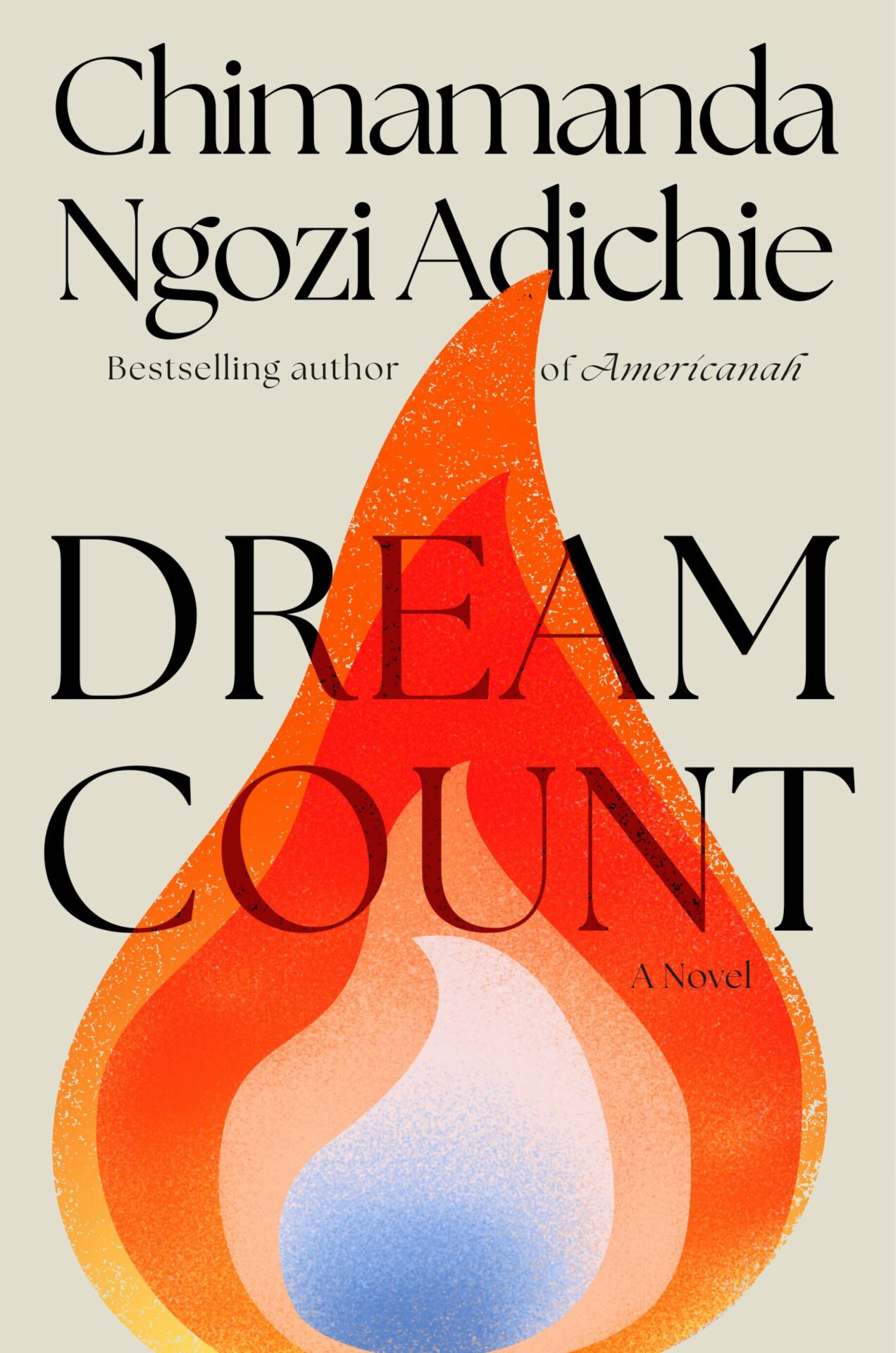
Top 30 Cartoon Characters That Were Villains
Our list rounds up the top 30 cartoon characters that were villains, each one more wonderfully wicked than the last.
africanliterature, feminism
Dream Count isn’t particularly a happy one. It didn’t evoke hope in me, but it felt real, grounding, and even a little scary

Chimamanda Ngozi Adichie.
I’m just going to let her name sit with you for a bit.
Do you feel triggered to make an argument? Are you okay?
If you are, then welcome to my review of CNA’s latest work of fiction—Dream Count.
From the first page, this book gave me a feeling I couldn’t quite shake—like I was holding someone’s private notebook, filled with the kind of thoughts you only write down when no one’s watching. This isn’t a book you just read and move on from. It lingers like a question you’re not ready to answer.
Dream Count, much like a lot of the work its author has put out in recent years—and much like Chimamanda herself—has faced polar-opposite reception on many fronts. Many either love the book and resonate deeply with its characters, saying it portrayed their lives and brought them to tears, or they do not understand anything the author was trying to say and wish they hadn’t touched the book at all.
But that’s okay. This dichotomy is exactly what is to be expected when an audience is presented with a realistic depiction of human beings as individuals rather than a collective.
Please note that there may be spoilers, even though I don’t think they’d impact the outcome as much.
The book covers the reminiscences of four women—three Nigerian and one Guinean—during the COVID-19 pandemic. These women’s lives are intertwined, but each story remains unique and independent of the others.
Chiamaka (Chia) is the dreamy, cheerful, and optimistic daughter of rich Nigerian parents who has primarily lived her post-secondary school life in the US. She’s sheltered by her parents, and her many dreams of love, traveling, and writing have been encouraged—nurtured, even—by her father, who buys her a house in Maryland so she can “focus on her writing.”
In her reflections, she muses about how her dreams panned out, as she traveled the world writing and trying to sell her travel blogs, detailing her experiences through her unique lens as a woman traveling with a Nigerian passport, while trying not to become what the world wants to make of her—instead of who she’d rather be.
Still, beneath all that freedom, there’s a quiet ache for love and family—a longing she refuses to compromise.
Zikora, Chia’s Nigerian friend and a successful lawyer in America, is a reprise from Chimamanda’s earlier short story, Zikora. She is a strong-willed, career-driven woman who would like nothing more than to find a man who isn’t intimidated by her, doesn’t want to diminish her, or turn her into someone else. A tough balancing act when she’s a phenomenal lawyer, fast on track to becoming partner at her firm.
But when disaster strikes, and she’s sorely disappointed by man after man—men she thought truly understood her and whom she wanted to share her life with—only to be abandoned when she falls pregnant without any closure or explanation, she finds unexpected comfort in someone she’d never had an easy relationship with.
Her new struggles open her eyes to the unique positions others in her life have been in—what they’ve endured through her lifetime—and she finds a new kind of kinship with them.
Kadiatou wasn’t supposed to be the “different” one. She was content to be the obedient, dutiful second daughter, living life with her head down. But when life throws her into several spins, she must fight to give her daughter a better life in America—a chance she herself never had. She finds work as a hotel maid and a housemaid for Chia, who enjoys her company and regards her as a friend.
But just when she finds a path that seems promising, she is faced with her biggest trial yet. Now, she seems to be drowning, the life she’d built for her daughter slipping through her grasp. Kadiatou’s story is heavily inspired by Nafissatou Diallo.
Chia’s cousin—and the other side of Chia’s coin—is resilient, strong-willed, confident, and largely unmoved by the opinions of others. She rises quickly through the ranks at the bank she’s worked at since graduation because she’s smart and knows how to play the Nigerian game of “rub my back, I rub yours”—and it leaves her very rich.
But as she grows older, she desires something more—something noble. She goes to America, “home of the free,” for graduate studies, only to be surprised and disheartened by the rigidity of principle and thought she finds in liberal arts academia. This deteriorates her resolve until she must decide whether to bend or give up and return to Abuja.
This book originally read like a diary, and it’s easy to be tempted into thinking that CNA left much of herself on the pages.
In my opinion, Chimamanda allowed some measure of herself to seep into the formation of these women—and I felt that the strongest while reading Chia and Omelegor. They rang a little familiar. Their desire for a different kind of freedom, and of course, their shared finding of purpose in writing.
Chia’s love for seeing all of the world and telling her stories the way she wants—and probably a little bit of her background too. Omelegor’s desire for something better, something noble and aspirational. Her frustration with not being able to find what she sought during her sojourn in America, and how appalled she was at the rigidity in thinking and rationality she experienced in what was supposed to be “a place for all thoughts.”
The most “obvious” evidence? Chimamanda writes both these characters in the first person, while the other two are in third. There’s intention in that.
What Dream Count does, in a quiet but clear way, is ask: What does it mean to want more than what the world says you should want? Maybe it’s a book about the kinds of dreams women are told to chase and the quiet rebellions that form when those dreams start to feel like cages.
During her interview on Trevor Noah’s podcast What Now, as part of her press tour for the book, Chimamanda muses about her motivation for the novel—even as she makes it clear that she doesn’t like the “why” question.
“It’s fiction, why must there be a why?”
When asked what sort of novel Dream Count was, she said:
“…a novel of love, dreams, melancholy and longing. I think it’s my most grown-up novel—which is to say, the novel where I’m most willing to acknowledge, even embrace, uncertainty. And I don’t need to have all the answers.”
She also mentioned that she considered Half of a Yellow Sun a responsibility, while Americanah was her attempt at setting herself free from being the “good daughter of literature.”
She touches on why the men’s stories in Dream Count were left obscure and unanswered. She says she doesn’t know what their stories are but also speaks of having compassion for some of them and what must have been going on in their lives that influenced their actions—especially Kwame, who probably inspired the most rage from readers angry with the men in the book.
When asked if she shared Omelegor’s views about American academia, she responded that she intended the book to be a type of satire—holding up a subtle, mocking mirror to the real-life counterparts of the story’s themes: academia, politics, and the social climate.
Dream Count isn’t particularly a happy book. It didn’t evoke hope in me, but it felt real, grounding, and even a little scary. Many times, I put the book down and mused aloud to myself:
Aunty Chi, please, won’t you write a happy character? One unburdened by a world so desperate to steal their happiness?
I want a character who isn’t seeing life through the darkish tint of cynicism.
If you’re wondering, I think her response is a laugh followed by a sigh—so Nigerian in the way it says, “you never see anything.”
Finally—and this is a PSA—the book has nothing to do with COVID other than its use of the period as a time of reflection. Don’t try to seek any other “meaning” in that aspect.

Peace is an avid book lover whose biggest selling point is her desire to share everything good she finds with everyone she loves. She writes both fiction and non-fiction professionally, but truly finds fulfilment when she is free to let her imagination fly. She loves learning new things, listening to good music, eating good food, reading all the good books, watching good movies, and sleeping. She lives every day knowing that there is an amazing new thing to discover!

Our list rounds up the top 30 cartoon characters that were villains, each one more wonderfully wicked than the last.

DC is great at making comics and animated movies, while the MCU has the upper hand in its cinematic aspects

Discover the best apps to read books for free in 2025. Access thousands of free e-books and audiobooks on your phone or tablet. ...

There are some outright funny cartoon characters who exist solely to crack you up, loud, hard, and with zero apology.

Things Fall Apart is for the colonizers as well as the colonized, helping to understand the role of colonialism in the realization...

While many of the Nollywood movies on our list are quite old, it’s a testament to the capabilities of the industry’s p...

While this isn’t an exhaustive list, it comprises some of the most popular mythical creatures from around the world.